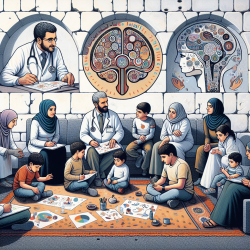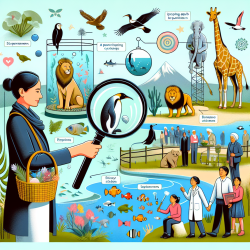Introduction: The Need for a Comprehensive Approach
In today's rapidly evolving educational landscape, the role of universities in shaping future health professionals is more critical than ever. The research article "Sexual education for university students and the community in a European project: study protocol" highlights the importance of integrating comprehensive sexual education into nursing curricula. This approach not only enhances the educational experience but also prepares students to provide holistic care, addressing a vital aspect of human health.
Key Findings: Bridging the Gap in Sexual Education
The study conducted across universities in Spain, Portugal, Italy, and the USA, underscores a significant gap in sexual education within nursing programs. Despite the biological aspects being covered, there is a lack of comprehensive content that addresses the socio-cultural dimensions of sexuality. This gap can hinder future nurses from providing inclusive and culturally competent care.
The research aims to fill this void by developing an educational model that incorporates both quantitative and qualitative approaches. By using tools like questionnaires and semi-structured interviews, the study seeks to understand the perspectives of students, professors, and community members on sexuality education.
Implications for Practitioners: Enhancing Skills and Knowledge
For practitioners in the field of speech-language pathology and related disciplines, the findings of this study offer valuable insights. By integrating the outcomes of this research into their practice, educators can:
- Enhance their understanding of cultural and social influences on sexuality, leading to more effective communication with diverse populations.
- Develop innovative pedagogical strategies that incorporate sexuality education into broader health curricula.
- Foster a more inclusive educational environment that respects and acknowledges diverse sexual orientations and identities.
Encouraging Further Research: A Call to Action
While the study provides a robust framework for improving sexual education, it also highlights the need for ongoing research. Practitioners are encouraged to explore further how these educational models can be adapted and implemented in different cultural contexts. By doing so, they can contribute to a global dialogue on improving sexual health education and outcomes.
Conclusion: A Path Forward
The integration of comprehensive sexual education into nursing and health-related curricula is not just an academic exercise; it is a vital step towards ensuring holistic health care. By embracing the findings of this research, educators and practitioners can play a pivotal role in shaping a future where sexual health is an integral part of overall well-being.
To read the original research paper, please follow this link: Sexual education for university students and the community in a European project: study protocol.










